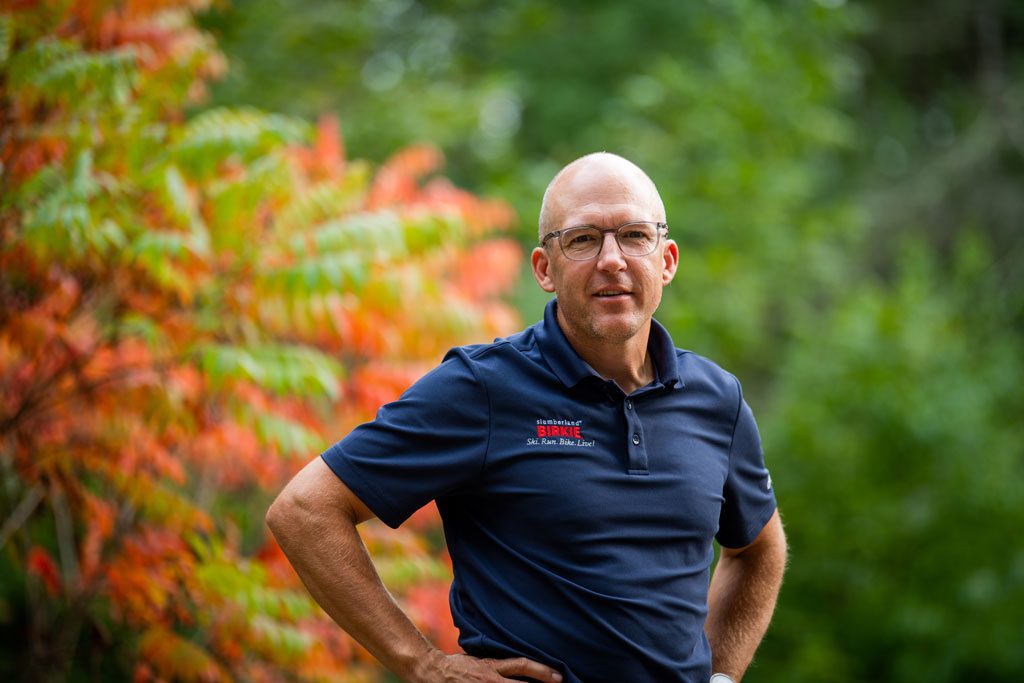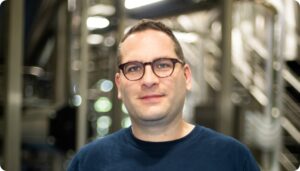
Ben Popp, Executive Director of the American Birkebeiner Ski Foundation (ABSF), is committed to Wisconsin’s natural resources and working with others to improve the wellness and well-being of the citizens that live here.
Fueling thriving recreation and driving economic prosperity
When you live in Wisconsin, it’s easy to take our incredible natural resources for granted. We have clean water, healthy forests, and spectacular trails throughout the entire state. These natural resources are more than just beautiful to look at. They provide unmatched opportunities for agriculture, forestry, and tourism that are a driving force for Wisconsin’s economy.
Working together to protect our natural resources
Wisconsin is surrounded by water on virtually every side and has countless freshwater lakes within the state. Our waterways are clean and provide access for everyone to enjoy activities like kayaking, canoeing, tubing, and fishing. That’s not something you’ll find everywhere. We also have 16 million acres of forests filled with unbelievable trails that allow us to enjoy things like mountain biking, ATVing, cross-country skiing, and the opportunity to see wildlife.
We’re lucky that we live in a state that prioritizes our natural resources and works to not only maintain them but also to continuously improve them. Our timber industry works hard to manage and increase the health of our forests, which ultimately improves the trails that are used by hikers, bikers, and skiers. By managing forests in a healthy way, they will grow and be more sustainable, which allows for more recreation.
Wisconsin’s outdoor recreation industry is growing
According to Wisconsin’s Office of Outdoor Recreation, outdoor recreation in Wisconsin grew three times faster than the state GDP in 2020-2021. The outdoor recreation economy contributed $8.7 billion in 2021, or 2.4%, to the state’s GDP. This is a 14.1% increase from 2020. None of this would be possible without our abundance of natural resources.
Sure, a lot of states have access to natural resources. What makes Wisconsin special is that we offer so many outdoor activities and have an incredible infrastructure to get to our waterways and trails, so it’s easy to get from one to the other. Most places don’t offer skiing and snowmobiling in the same area, but here in Wisconsin, we work together with friend groups and communities to enable those opportunities in a single location. It might not be the same trail but it’s easier to move around and quickly get to different trails.
This access has led to a lot of crossovers in outdoor recreation. Enthusiasts want to try new activities, especially if we make it easy for them. So, we find that people aren’t just skiing, just biking, or just snowmobiling. We’re seeing that they love to ski and snowmobile – or mountain bike and trail run. This benefits our economy even more.
Outdoor recreation creates jobs and stimulates the economy
America is facing a real labor shortage. Finding enough employees to keep your business running smoothly is a big challenge these days. However, Wisconsin’s natural resources are helping to attract a workforce. With more people working remotely, we’re finding people are saying, “If I can work anywhere, I want to work where I can ride my ATV or go fishing.” We’re seeing that people are moving from big cities like Chicago to have easier access to outdoor recreation. This is helping to create and maintain a super great work force.
In addition, Wisconsin is driving forward by repurposing industries that are no longer relevant and investing dollars into these areas to transform them into recreation. We saw it years ago with Rails to Trails conversions. Now, we’re taking land in Hurley that was once used for mining and turning it into mountain bike trails. These new trails are attracting outdoor enthusiasts and new businesses to the area. They also enable us to put on events, which bring in money. And while the events draw people to an area, the economic benefit isn’t just the events themselves. The real money comes in when event participants see how beautiful Wisconsin is and then decide they want to build a cabin here. Many people outside of the state don’t think about going to Wisconsin for vacation. However, when they do a marathon or a ski race and they see how beautiful it is, they end up buying a home here. That’s where the true economic benefits are. That’s what we’re seeing with my organization’s event, the American Birkebeiner. The economic impact is around $25 million, but a good portion of that is derived from second home buyers.
Over the years, the Birkie has made nearly $10 million in capital improvements for things like ski trails and trails heads. Much of that money is fundraised from companies in Minneapolis, Milwaukee, and Madison. Businesses make these investments to benefit the race but also lift the local community because local residents get to use the trails every day. And even if someone doesn’t ski, the investments beautify the area and create new buildings at trail heads they can use.
This allows Wisconsin to attract more professionals and more families, which in turn strengthens our schools. Having a healthy school system supports other services that a small community might not be able to maintain as easily, like roads and fire departments. Having access to natural resources helps make a community healthier and having a healthy community helps support families, businesses, and events. It’s a big virtuous circle.
Moving forward
Outdoor recreation drives tourism, attracts residents, employees, and businesses, generates jobs, and offers a better quality of life for everyone. I applaud the state of Wisconsin for prioritizing our natural resources because without having access to them, outdoor recreation wouldn’t be possible. Moving forward, our challenge is to continue to invest in our natural resources and work together even better to create long-term economic benefits for the state and improve the wellness and well-being of the citizens that live here.

